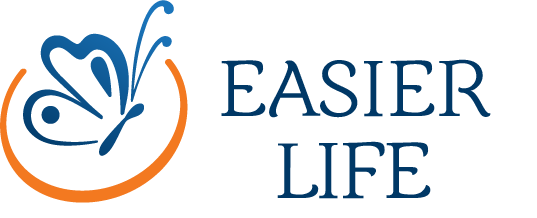- This provision focuses on supporting young children and their families during the critical early years of growth and development. It includes guidance on education, healthcare, social development, and gender awareness, helping to build a strong foundation for future well-being.
- Learning Styles (VAK) - Visual, Auditory, Kinesthetic: Discover Your Learning Style
- 2 YouTube videos to watch.
- https://www.youtube.com/watch?v=qcCtPgzlGTs
- https://www.youtube.com/watch?v=_IopcOwfsoU
- Free Assessment For Adults (10 minutes)
- https://trainingcoursematerial.com/free-assessment-tools/vak-learning-styles-questionnaire
- Free Assessments For Children (Reading Time 20 minutes - x 6 Assessments, you can do some or all)
- https://www.lovetoknow.com/parenting/kids/learning-style-test-children
- Provides resources on different learning styles, helping parents understand whether their child learns best through visual, auditory, or kinesthetic methods. This guidance includes tips on tailoring educational activities and spiritual teachings to suit individual learning preferences, making learning more engaging and effective for young children.
- Personality Profile Assessments (DISC):
- Introduces age-appropriate DISC personality assessments to help children and their parents better understand core personality traits. Parents and educators can tailor learning environments and communication styles to suit the child's personality by recognising whether a child is more Dominant, Influential, Steady, or Conscientious. This approach fosters a more supportive and nurturing development, helping children build self-awareness, emotional intelligence, and positive social relationships from a young age.
- https://www.surroundedbyidiots.com/en/disc-analysis Disc For Adults
- https://discpersonalitytesting.com/free-disc-test
- Disc For Adults (20 minutes)
- https://peoplesmartacademy.com/home-page/kids-disc
- Disc For Kids (20 minutes)
- Early Childhood Education: Offers resources for parents to support their child’s early educational needs, whether through homeschooling or traditional schooling. This includes advice on choosing the right educational path, promoting academic success, and integrating spiritual practices into a child’s learning environment.
- Developmental Milestones: Provides parents with information on key developmental milestones from birth to adolescence. This covers physical, emotional, and intellectual growth, helping families ensure their child is progressing healthily and aligned with age-appropriate expectations.
- Pediatric Healthcare and Immunisations: Offers guidance on managing your child’s health through regular checkups, vaccinations, and preventive care. Access to pediatric specialists and recommendations for maintaining a balanced diet and healthy lifestyle are provided to support long-term well-being.
- Building Emotional Intelligence and Communication Skills: Workshops are designed to help children develop emotional intelligence, focusing on self-awareness, empathy, and effective communication. These sessions aim to equip children with tools for managing emotions and building positive relationships from a young age, fostering emotional resilience as they grow.
- Social Development and Peer Relationships: Guidance on helping children form healthy social connections, including navigating early friendships, group dynamics, and conflict resolution. Workshops and support groups are available for parents and children alike to promote social skills in a Krishna-conscious environment.
- Creative Play and Spiritual Engagement: Offers parents and caregivers tools for encouraging creative expression and spiritual development through activities such as art, music, and storytelling. These activities aim to engage children in fun and meaningful ways that deepen their connection to Krishna consciousness from a young age.
- Gender Intelligence: Provides age-appropriate workshops and discussions on understanding gender differences and roles. Children are guided in exploring how biology and gender can shape experiences, relationships, and self-perception, with an emphasis on fostering respect, equality, and inclusivity from an early age.
- Child Protection and Safeguarding: Emphasizes the importance of safeguarding children within the community. Parents and caregivers are provided with resources on child protection, ensuring that all activities involving children are conducted in a safe and nurturing environment.
- This includes best practices for identifying risks, promoting safe interactions, and maintaining children's physical and emotional well-being in all community activities.
Example 1: Creative Play and Spiritual Engagement Facilitator
Offer:
I help young children express their creativity and deepen their spiritual connection through engaging activities tailored to their learning styles.Details:
- Host sessions featuring storytelling, Krishna-conscious art, and devotional music to nurture creativity and spirituality.
- Provide tailored guidance for children with visual, auditory, or kinesthetic learning styles.
- Incorporate hands-on crafts or puppet shows to teach moral lessons and values.
Availability:
- Weekly sessions, 2 hours each, for ages 4–10. Sessions can be held in person within a 10-mile radius or online.
Credentials:
- Experienced children’s educator and storyteller with expertise in Krishna-conscious teaching methods.
Example 2: Emotional Intelligence and Social Skills Workshop Leader
Offer:
Through interactive workshops, I guide children and parents in developing emotional intelligence and positive peer relationships.Details:
- Conduct activities to teach self-awareness, empathy, and effective communication tailored to children’s developmental stages.
- Offer practical tools for conflict resolution and building lasting friendships within Krishna-conscious communities.
- Provide parents with strategies to reinforce these skills at home.
Availability:
- Monthly workshops for children aged 6–12 and their parents.
Credentials:
- Certified youth mentor with experience in emotional intelligence training and conflict resolution.
Example 3: Developmental Milestones and Early Education Advisor
Offer:
I support parents in tracking their child’s growth and ensuring their educational needs are met in alignment with Krishna-conscious values.Details:
- Provide personalized advice on developmental milestones, ensuring children achieve age-appropriate growth in physical, emotional, and intellectual areas.
- Share resources on homeschooling and integrating spiritual practices into daily learning.
- Help design engaging educational activities that match a child’s personality and learning style (e.g., DISC personality assessments).
Availability:
- Biweekly consultations in person or online, each lasting 1–1.5 hours.
Credentials:
- Experienced developmental coach and homeschooling advisor specializing in Krishna-conscious education.
These examples highlight diverse ways members can contribute to childhood development by leveraging creativity, emotional intelligence, and education while fostering a Krishna-conscious upbringing.
VAK (Visual, Auditory, Kinesthetic) Examples for Children
Example 1: Visual Learners
-
Situation: Learning the alphabet.
- Use colorful flashcards with pictures of objects corresponding to each letter (e.g., "A" with an apple image).
- Provide drawing activities where they color or trace letters.
- Create a visual chart of the alphabet to display prominently.
-
Parent/Teacher Strategy: Incorporate picture books, charts, and videos to make learning engaging. Organize tasks with visual cues like stickers or checklists.
Example 2: Auditory Learners
-
Situation: Understanding a story or concept.
- Read stories aloud with expressive tones to capture their attention.
- Encourage them to repeat or sing rhymes and songs to reinforce memory.
- Engage in discussions where they can discuss the story and share their understanding.
-
Parent/Teacher Strategy: Use audiobooks, sing-along activities, or storytelling sessions to keep them engaged. Reinforce learning with verbal praise and feedback.
Example 3: Kinesthetic Learners
-
Situation: Exploring basic math concepts like addition or subtraction.
- Use physical objects like blocks or beads to help them count and visualize the problem.
- Play games that involve movement, such as hopping, to solve math problems written on the floor.
- Encourage building activities or puzzles to engage their hands and minds.
-
Parent/Teacher Strategy: Plan interactive lessons with plenty of physical activities. Allow breaks for movement and use real-world objects to teach concepts.


